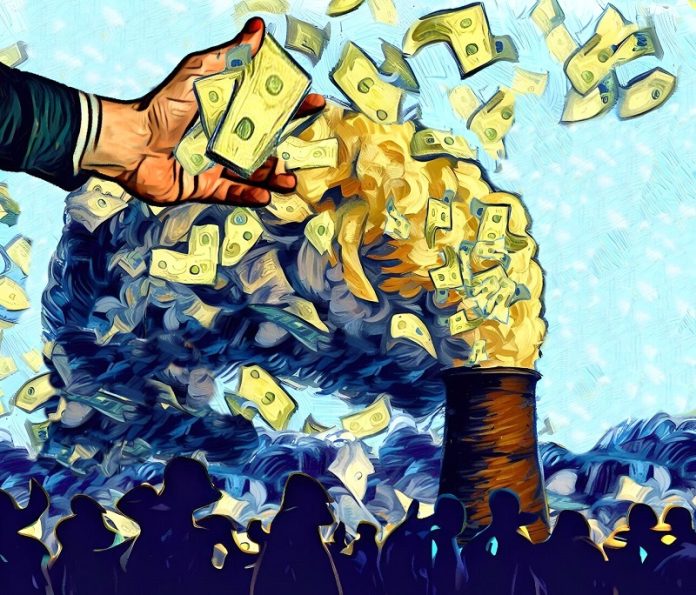
A recent study from the University of Massachusetts Amherst has found that the richest 10% of Americans produce 40% of the country’s greenhouse gas emissions.
The findings, shared in the PLOS Climate journal, link earnings, especially money from investments, to the pollution tied to creating that wealth.
The researchers suggest creating tax policies that focus on shareholders and the pollution linked to their earnings to address this issue.
For years, experts believed that the things we buy and consume directly cause greenhouse gas emissions.
For example, eating meat, driving gasoline cars, and purchasing products all result in pollution. Policymakers have tried to steer people to make greener choices, like eating plant-based foods or using electric cars.
Jared Starr, the study’s lead researcher from UMass Amherst, points out a problem with this approach.
He says focusing on consumption mainly affects the poor, as the super-rich don’t spend all their money.
Instead, they invest a lot of it. And when they invest their money, any pollution tied to those investments isn’t captured by taxes focused on consumption.
Starr wanted to know what happens when we look at the pollution caused by how people earn money, rather than how they spend it. It’s easier to track regular salaries, but investment earnings, especially for the richest Americans, are trickier to measure.
The research team solved this by studying data from the past 30 years. They followed money transfers and the pollution connected to them.
They classified emissions into two types:
Supplier-based emissions: Pollution caused by companies supplying fossil fuels. Although these companies might not release much pollution themselves, they profit by selling fossil fuels that others burn.
Producer-based emissions: Pollution directly released by businesses, like power plants.
They then matched this data with income information of over 5 million Americans. The team discovered that the top 10% of earners are connected to over 40% of the country’s emissions. Shockingly, the top 1% alone account for 15-17% of total emissions.
Also, the team found out that the majority of households with the most pollution-intense incomes were among the top 0.1%. These super-rich households typically work in finance, real estate, manufacturing, and mining.
Starr mentions an alarming fact: just 15 days of earnings for a top 0.1% household produces as much pollution as a lifetime’s earnings for a household in the poorest 10%.
He believes it’s essential to pinpoint who benefits most from pollution-causing activities and craft policies that change their behavior.
The researchers suggest a change in the tax approach. Instead of taxing products or services, they recommend taxing income, especially earnings from investments.
This would motivate the super-rich, who contribute the most to climate change, to make their businesses and investments greener. Starr believes that if it’s financially beneficial for them, many wealthy individuals and big corporations would quickly turn to greener practices.
In a nutshell, the study emphasizes making it financially attractive for the wealthiest Americans to fight climate change, as their incomes and investments have a significant impact on the nation’s pollution.
Follow us on Twitter for more articles about this topic.



